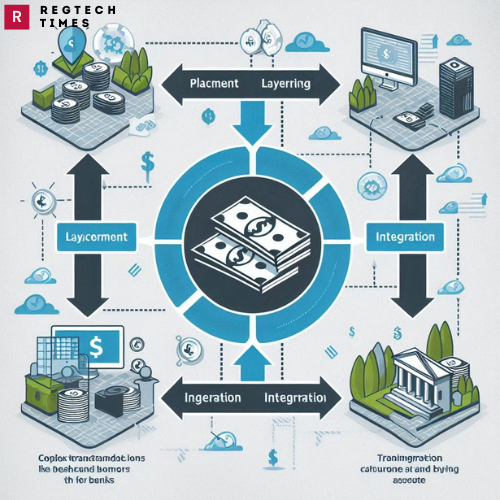In a notable legal development, Angelo Dalmau, a 54-year-old resident of Amsterdam, New York, has been sentenced to 93 months in prison for his involvement in a series of serious criminal activities, including drug trafficking, money laundering, and firearm offenses. This case highlights the intricate nature of money laundering and its critical role in supporting criminal enterprises.
Understanding Angelo Dalmau’s Money Laundering Operation
Angelo Dalmau’s case serves as a striking example of how money laundering operates within the broader context of criminal activities. Money laundering involves a process designed to disguise the origins of illegally obtained money, integrating it into the legitimate financial system to make it appear as if it comes from a lawful source. In Dalmau’s case, this process was used to obscure the profits made from drug sales.
Between September 2021 and March 2022, Dalmau was involved in distributing approximately 250 grams of crack cocaine. This significant amount of drugs generated substantial illicit revenue. To conceal these proceeds, Dalmau engaged in a money laundering scheme that involved delivering $149,500 to another individual with the intent of laundering the funds.
The Mechanisms of Money Laundering
Money laundering unfolds in three key stages: placement, layering, and integration, each crucial for distancing illicit funds from their criminal origins and making them appear legitimate.
The initial stage is placement, where illicit funds are introduced into the financial system. For Angelo Dalmau, this meant funneling cash from drug sales into various financial channels, embedding the money within the system.
Seattle Resident Geoffrey K. Auyeung Faces Federal Charges in $64 Million Money Laundering Case
Layering follows, involving a series of complex transactions to obscure the funds’ origins. This stage includes moving money between accounts, purchasing high-value assets, or using intermediaries to disguise the source. Dalmau used these methods to further mask the illicit origins of his money.
The final stage is integration, where the cleaned money is reintroduced into the economy as seemingly legitimate income. Dalmau integrated the laundered funds into his financial transactions, making it appear as though the money was lawfully acquired and thus harder to trace.
These stages collectively allow illicit funds to be disguised and utilized within the economy, facilitating ongoing criminal activities without detection.
Law Enforcement’s Role in Uncovering the Scheme
The investigation into Angelo Dalmau’s criminal activities was a collaborative effort involving the Drug Enforcement Administration (DEA), the Internal Revenue Service-Criminal Investigation (IRS-CI), and the Amsterdam Police Department. This multi-agency approach was crucial in tracing the financial transactions and uncovering the laundering scheme.
During a search of Dalmau’s residence on April 14, 2022, investigators uncovered significant evidence, including approximately 100 grams of crack cocaine, drug paraphernalia, $191,843 in cash, and a loaded firearm. This evidence provided a comprehensive view of Dalmau’s illegal operations and reinforced the seriousness of his money laundering activities.
Implications of Money Laundering in Criminal Enterprises
The case of Angelo Dalmau highlights the broader implications of money laundering beyond the immediate scope of drug trafficking. Money laundering plays a pivotal role in supporting ongoing criminal enterprises by masking the origins of illicit funds and enabling the continuation of illegal activities.
In communities impacted by drug trafficking, money laundering can have far-reaching consequences. It can drive up property values, contribute to economic instability, and increase the risk of corruption. By obscuring the source of criminal profits, money laundering exacerbates the social and economic issues associated with drug-related crime.
Angelo Dalmau’s sentencing underscores the importance of understanding and addressing money laundering in the context of criminal activities. The case illustrates how money laundering enables criminal enterprises to thrive and highlights the need for robust law enforcement strategies to combat financial crimes.
As authorities continue to refine their approaches to tackling money laundering, cases like Dalmau’s demonstrate the critical role of coordinated investigations and the impact of effective financial crime prevention. By focusing on the mechanisms of money laundering and the broader implications of such crimes, law enforcement can work to dismantle criminal networks and restore integrity to financial systems and communities.


